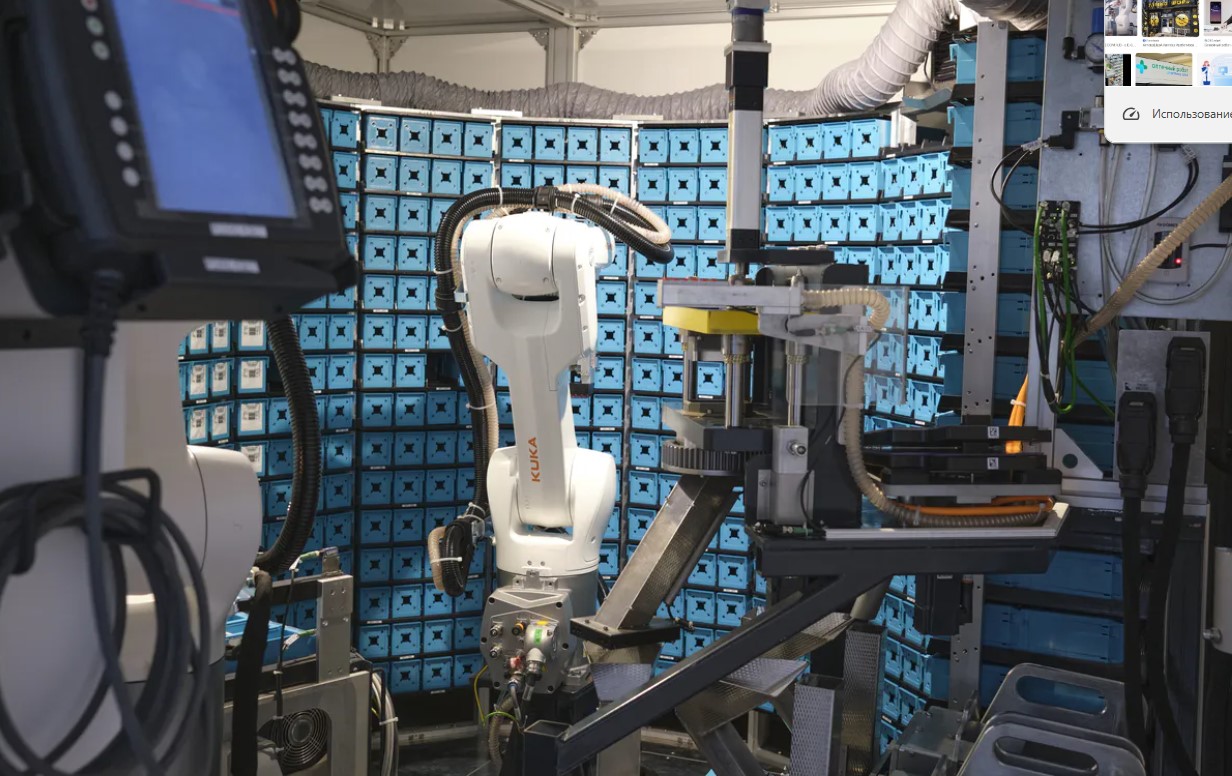Calls for Ukraine
Calls for Europe
Calls for USA

Can a robot help prepare cancer drugs in a hospital pharmacy? This is what hospital pharmacist Tjerk Geersing investigated in his doctoral thesis. He compared manual and automated preparation in terms of quality, efficiency and safety. He defended his thesis on 19 March this year.
In 2017, the OLVG hospital pharmacy became the first in Benelux to have a state-of-the-art robot capable of preparing medicines. As part of his doctoral thesis, Geersing decided to evaluate this ‘new colleague’. How well does it cope with the preparation of chemotherapy drugs, which are then administered by nurses in the hospital or at patients’ homes?
Chemotherapy drugs are dangerous and must be prepared in the hospital pharmacy to protect staff. This process takes place in specially equipped clean rooms. ‘Because the medicine goes directly into the bloodstream, it should be completely free of any contaminants – especially for cancer patients. The preparation must therefore be sterile,’ explains Girsing. -A robot can handle these tasks just as well, if not better, than a human.
The robot is accurate and efficient
Gееrsing and his colleagues focused on three aspects: product quality, time and cost efficiency, and safety. The APOTECAchemo robot performed excellently: the drugs prepared were of the same accuracy and quality as manually prepared doses.
Although the robot takes a little longer to operate, it ultimately saves people’s time by automating the workflow. In addition, fewer employees are required. Geersing explains, ‘Our calculations showed that when manual and robotic preparation are combined, each employee produces twice as much product and direct labour costs are reduced by 2.5 times.’
They are cheaper, make fewer mistakes and are more environmentally friendly
The robot not only saves time, but also makes the drug preparation process more streamlined. ‘The robot uses the drug vials more efficiently, reducing waste,’ says Geersing.
He calculates that this saves an average of €45,000 per year per drug. The risk of human error is also reduced because the process is automated. In addition, less protective clothing is required because fewer people are involved in the preparation process.
Drug preparation is governed by strict rules and the Dutch Inspectorate for Health and Youth Care (IGJ) monitors compliance with these regulations. ‘The existing rules for manual preparation do not reflect the potential for automation. With robots, the risk of errors and contamination is much lower.’ Geersing is working with a team of experts to update the existing guidelines.
A future with robots
Will robots replace all the manual prep work in hospital pharmacies? No, says Geersing. ‘Small volumes, thick liquids and complex preparations still require manual labour. In addition, an employee will always be needed to load and unload materials from the robot.’
Nevertheless, Geersing envisions a future where every hospital pharmacy will have a robot to prepare drugs. ‘If current trends continue, one in four people in the Netherlands will have to work in the healthcare sector. With this robot, we will be better able to cope with the growing demand for medical care.’
Please rate the work of MedTour
